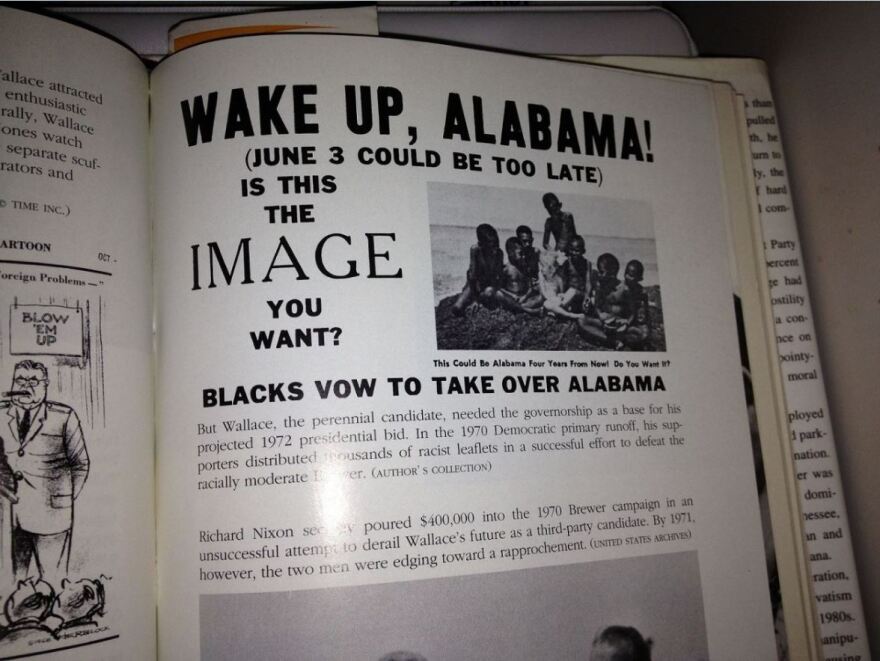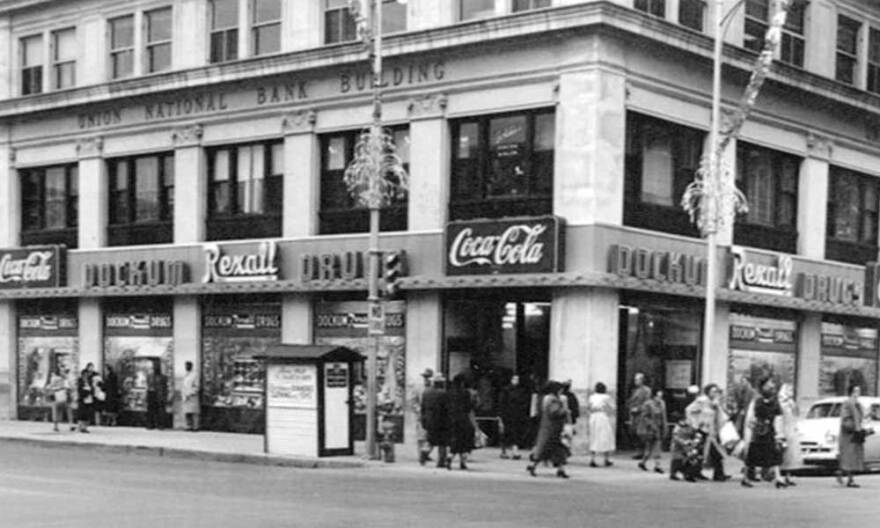Since President Donald Trump took office, there has been a flurry of protests and rallies here in Wichita, spurred by grassroots activists. Dr. Gretchen Eick, professor emeritus at Friends University, is a local history expert when it comes to the modern civil rights movement. KMUW’s Abigail Beckman spoke to Eick about how the activities we’re seeing now parallel the past.
All across the country, the news in recent weeks has been chock-full of pictures of people proudly holding handmade signs at rallies, videos of protesters filling the streets, and stories about locally sourced activism.
In Wichita, there have been multiple events on the Wichita State University campus. One advocated for immigrants' rights in response to Trump’s travel ban.

In late January, a crowd of nearly 3,000 people marched from the Keeper of the Plains to city hall as part of the Air Capital Women’s March, all while a larger Women’s March was also taking place in Washington, D.C.
Around that same time, close to 600 teens from Wichita boarded buses headed for the March for Life in Washington.

There have been gatherings at the Statehouse in Topeka, in Garden City, in western Kansas and at the Wichita airport. And that’s just to name a few.
Through her research of the Dockum Drugstore Sit-In, Dr. Gretchen Eick has become a local history expert when it comes to the modern civil rights movement. She says our country tends to progress in cyclical movements, where things get better -- and then suddenly get worse.

“What that does to people who are being jerked around, especially people of color, for example, is that it just pulls the rug out from under you in terms of your confidence that things are getting better,” Eick explains.
Eick is the author of Dissent in Wichita, a book that analyzes the civil rights movement that happened in the Midwest from the 1950s to the 1970s. She says the current political environment, and the public’s response to it, are evidence of that tide-like cycle of progress in civil rights.
“People today, you hear them saying, ‘You know, this was supposed to be over in the 60s,’” She says. “We’ve got the laws on the books, but now we can’t get them enforced.”
Similarities between the 60s and today also extend to political candidates, Eick says. She compares the campaigns of Hillary Clinton, Bernie Sanders and Donald Trump to those of the 1968 election.
In the primary season that year, there were tremendous ideological differences between the parties. Democrat Gene McCarthy was running against current Vice President Hubert Humphrey.
“I mean, this is sort of like the passion with which people looked at Hillary and Bernie and saw them as very, very different in their philosophies,” Eick says. “And then, we had George Wallace, the segregationist governor of Alabama, running.” 



Wallace a member of the American Independent Party, ran as a third party candidate. Eick says that throughout his political career, Wallace used racial tension to attract voters. She gives the example of a campaign ad from his 1970 run for governor of Alabama.
“Wallace put out campaign literature that showed a group of little black guys with a little white blonde-haired girl with the question, ‘Do you want your daughter to be in this situation?’ ‘Do you trust that she would be safe?’ [It was] implying that she’d be raped by these 10-year-olds or 11-year-olds,” Eick says. “It was everywhere.”
Wallace lost the 1968 election to Richard Nixon, but Eick sees a reflection of Wallace's racist rhetoric in Nixon's campaign, as well.
“Nixon made it an election of ‘law and order,'” she says.
Quoting Nixon, she says: “We’ve become a country of a great division. But we’ve also become a country of great criminality and we have to get America back on the law and order track."
Eick says that language was used to imply that the civil rights and the anti-war movements had led the United States into more protests and violence.
“And therefore, we were going down the drain,” she says. “Something very similar to the rhetoric of Trump.”
Eick describes 1968 as a turning point for something called white backlash: the hostile reaction of white Americans to the advances of the civil rights movement. And she says that’s happening again.
Eick draws comparisons between today’s immigrants and the LGBT community and yesterday's African Americans. She says those parallels -- the lack of empathy and understanding -- are exacerbated by the suggestion that the media are lying.
“It gives you a good excuse,” she says. “If I’ve got a lot of things to do today, why spend the time reading the newspaper or going online and looking at how other countries are covering us? We just stay away from it.”
She says that for baby boomers, protests and rallies today may feel like an old wound being slowly opened up.
“For older people, my generation who lived through the civil rights movement, a lot of people never got over that feeling when there was a lot of protests going on, when there was a lot of frustration breaking out in communities of color in urban areas over police treatment, the same issue we hear a lot about today with Black Lives Matter,” she says. “If people have those memories, it was a time when everybody felt uncertain.”

She mentions the Dockum Drugstore Sit-In in Wichita in 1958, the center point of her historical research on civil rights. The sit-in was a student-led effort to end segregation, one of the first demonstrations of its kind.
“The civil rights movement moved the center of American politics, so people don’t use the n-word, so now people are maligned as politically correct, but actually [they're just being] civil. At least you’re recognizing that we are a country of many people, of many ethnicities, and nobody is more American than somebody else,” Eick says.
For other generations like millennials, however, Eick says most of this is totally new.
"A couple of our kids who said to [me and my husband], ‘Since the election we’ve realized that we were wrong to think that you were just kind of old school, going through a ritual that didn't have any relevance particularly today,'" Eick says. "And [they] realized, 'Oh my gosh, we've got to be really active.'”
[An earlier version of this story was updated to reflect the correct the political party of George Wallace in the 1968 election. Wallace was incorrectly identified as a Republican candidate; He ran as a member of the American Independent Party.]
--
Follow Abigail Beckman on Twitter @AbigailKMUW.
To contact KMUW News or to send in a news tip, reach us at news@kmuw.org.



